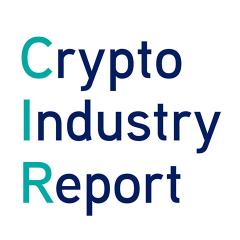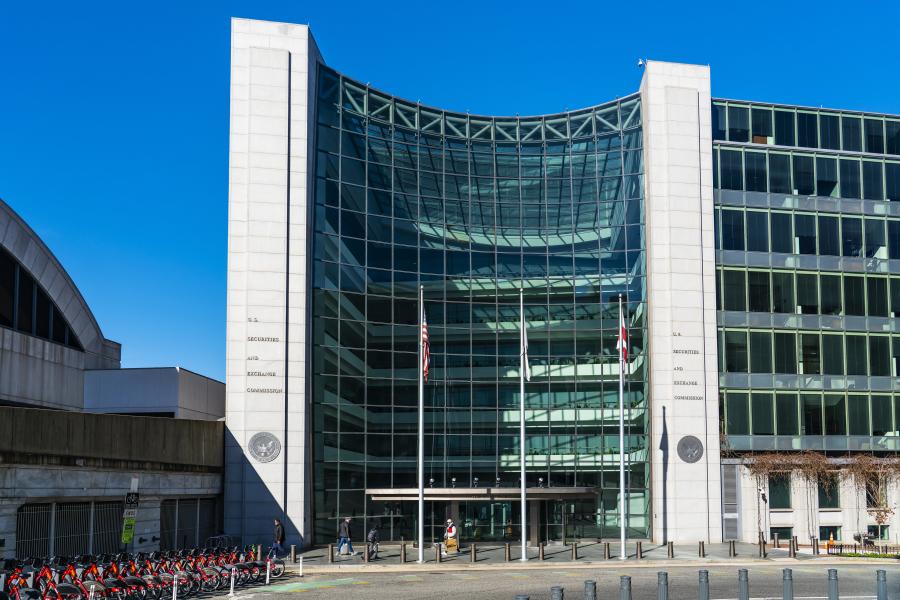Will digital asset darling DCG trigger yet another meltdown?
This week, our blockchain experts assessed the following topics:
- Will digital asset darling DCG trigger yet another meltdown?
- Diverging views on crypto across countries remain
- Ethereum joke turns into fear, uncertainty, and doubt (FUD)
- Battered cryptos give hope to CBDC projects
Our bi-weekly Crypto Industry Report provides you with valuable information on the global crypto industry – picked and analysed by our blockchain experts.
Will digital asset darling DCG trigger yet another meltdown?
The FTX’s collapse and its consequences continue to unravel. Venture capital company Digital Currency Group (DCG) could be the latest victim following the current mayhem. Based on a letter to investors, the company has disclosed a $2 billion debt, which mostly consists of intercompany loans between it and its subsidiary Genesis Global Capital. The debt comprises a $573 million loan to be repaid in May 2023, a $1.1 billion promissory note that’s owed to Genesis and due in 2032, and a $350 million credit facility from a group of lenders led by Eldrige. The promissory note is related to the fact that DCG assumed liabilities from Genesis following the 3AC collapse.
Despite the enormous liability, DCG’s CEO Barry Silbert is positive that the company will weather the storm. He also said that the company is on track in achieving an $800 million revenue in 2022. This would be a 20% drop from last year.
But before one can feel too reassured by Silbert’s words, it’s important to know just how intertwined DCG is with other major crypto companies. It would be yet serious damage to the overall crypto sector if the company were in serious trouble. After all, DCG owns Genesis Global Trading, crypto asset management company Grayscale Investments, crypto exchange Luno, Bitcoin mining company Foundry, and crypto media company Coindesk.
Trading firm Genesis Global appears to be the most affected of all DCG subsidiaries following the FTX crash. The company had lent money to FTX’s affiliate company, Alameda Research. According to its balance sheet, Genesis has outstanding loans worth $2.8 billion. 30% of this amount has been lent to its parent company DCG. The company suspended withdrawals on November 16. Before this, the company was looking for a $1 billion emergency loan. Adding insult to injury, Genesis is currently under scrutiny by regulators in Alabama and other U.S. states. For instance, Alabama is looking at the possible violation of securities laws.
There are fears that Grayscale Investments could be affected as well. The digital asset management firm has refused to provide proof of reserves for the Grayscale Bitcoin Trust (GBTC). Therefore, an independent analyst has combed through on-chain data to reveal that GBTC owned an estimated 633,000 BTC as of November 23, held by Coinbase Custody. The fact that Grayscale was unwilling to provide transparency is causing head-scratching and speculation. However, a Twitter user surmised that Grayscale is withholding this information because it’s not allowed to disclose it, according to a January 2017 SEC filing.
Meanwhile, the FTX exploiter that stole $600 million worth of crypto converted the digital assets to ether and then to renBTC and wrappedBTC. TheRen development team “joined” Alameda Research last year to work together to grow renBTC’s usage on various blockchains.
Still trying to contain contagion is Binance which has spearheaded the establishment of an industry recovery initiative (IRI). It has been joined by Aptos Labs, Jump Crypto, Kronos, and other crypto companies that will chip in $50 million. Binance’s CEO CZ tweeted that the company had allocated another $1 billion in BUSD to the industry’s recovery initiative. The initiative strives to protect consumers and rebuild the industry now that some crypto companies have failed, and some seem on the brink of collapsing.
Diverging views on crypto across countries remain
In the wake of the FTX implosion, regulation remains a highly essential but controversial topic. The regulatory news reported in the last couple of days highlights differing views on crypto and how regulators are approaching the topic.
New York’s approach is perceived as being rather negative. As it stands, the US state is becoming the first U.S. state to ban some crypto mining operations. The legislation will impose a two-year ban on crypto mining companies applying for permits to refurbish old fossil fuel plants into crypto mining operations. Also, crypto mining companies that aren’t using 100% renewable energy will not be allowed to renew their permits. New York is the exception since other states have in the past adopted more friendly laws through tax incentives to attract miners that were shifting from China following the ban on mining last year. While some consider this step to be a mistake, others from within the space welcome the approach, arguing that the Bitcoin mining industry wants to become greener and greener anyway.
Despite there being mixed feelings about New York’s mining legislation, Belgium’s stance on crypto is reassuring. The country’s Financial Services and Markets Authority (FSMA) has declared that bitcoin, ether, and other code-based cryptocurrencies are not securities. In its stepwise plan, FSMA says digital assets that are not securities may still be subject to other regulations if they “have a payment or exchange function.” FSMA will use the stepwise plan as a guideline until the EU’s Markets in Crypto Assets (MiCA) legislation is officially in place as of 2024.
Still, the most crypto-friendly jurisdiction arguably remains El Salvador. The Minister of Economy has recently presented a bill to regulate digital securities. This means the Central American country is going ahead with plans to issue bitcoin bonds which will be used to raise $1 billion for the government. The bill proposes the introduction of a National Digital Assets Commission to monitor digital asset issuers, service providers, and other companies that issue digital securities through public offerings. El Salvador defines digital assets as any asset stored on a blockchain. As some interpret the proposed law to mean that neither cryptocurrencies nor NFTs will be deemed securities.
Ethereum joke turns into fear, uncertainty, and doubt (FUD)
Wrapped bitcoin (WBTC), an ERC-20 token backed 1:1 to bitcoin, has been trading at a slight discount to BTC since the FTX collapse. WBTC enables users to utilise bitcoin on Ethereum-based DeFi protocols. Data shows that trading firm Alameda Research was a top WBTC merchant, having minted over 100,000 tokens. This has raised concerns that the funds backing Alameda’s WBTC may be mixed up with FTX’s funds or affected by the insolvencies that some major crypto firms are facing.
Following the WBTC depeg, some tweets started circulating claiming that wrapped ether (WETH) was insolvent. This was meant as a joke. Tron’s founder Justin Sun joined in with a tweet that said: “As a humble member of the crypto industry, I personally have discussed with my BFF @VitalikButerin and together we will invest $2b into [the Wrapped Ethereum Foundation (WEF)] to recover all the funds. Stay #SAFU! Stay strong!”
Nonetheless, some people took the tweets seriously, leading to FUD. This prompted Ethereum influencers to explain that the WETH insolvency tweets were an inside joke. The Twitter user that started the joke, Cygaar, wrote: “Fun fact: WETH cannot ever go insolvent. Your WETH will always be swappable 1:1 with ETH.”
Another user, Salazar, explained: “The only difference between ETH & WETH is the use case. When you wrap your ETH for WETH, your ETH is sent to a smart contract, and WETH is generated. Your ETH is then locked to back WETH through a reserve.”
Jokes aside, the Ethereum community is grappling with a more serious issue. MetaMask’s revised privacy policy says ConsenSys will start collecting IP addresses and ETH wallet addresses during transactions. According to the company behind the most popular Ethereum wallet, users’ data will only be collected if they’re using the default Remote Procedure Call (RPC) application, Infura.
Some MetaMask users went to Twitter to say that the policy violates their privacy and they may switch to other wallets. Others have tweeted instructions on how MetaMask users can reconfigure their wallets to prevent the collection of their data. MetaMask’s lead developer Dan Finlay also reassured users by tweeting that they were not using the IP addresses for anything.
Battered cryptos give hope to CBDC projects
With cryptocurrency confidence at an all-time low, central banks are attempting to fill the void. Although no Western country has or can launch a central bank digital currency (CBDC) soon, plans are ramping up across the board. For example, the Bank of Japan has started working on a CBDC experiment with the country’s top three banks and regional banks. If the experiment is successful, the central bank could roll out a CBDC in 2026. Moreover, the deputy governor at the Bank of England Jon Cunliffe said the UK may need a digital pound. Also, the central bank will also begin consultations on stablecoins next year. A bill that’s in parliament could see cryptocurrencies regulated as financial instruments in the UK.
So, it appears the competition is on. This will give the central bank that launches a CBDC the fastest first-mover advantage. First movers have more time to perfect technology, they can claim scarce resources like patents, and they can establish high switching costs, making it difficult for customers to shift to competitors’ products. These points are brought forward by a new research paper by economists from the Federal Reserve.
Still, some experts reckon stablecoins are better than CBDCs. They are therefore asking central banks to back stablecoins instead of launching CBDCs. “Adapting our regulatory and legislative environment to support stablecoins is already a formidable task, but it is probably easier than managing a CBDC for retail use, especially as the private sector currently provides all retail digital means of payments on legacy technology,” said Antoine Martin, financial research advisor in the Federal Reserve Bank of New York, during a policy forum in London.
Share post

Auch interessant

To be continued: SEC pushes back at Coinbase
SEC pushes back against Coinbase's claim of no regulatory jurisdiction, stating the crypto exchange knowingly violated securities laws. Meanwhile, Gemini, owned by the Winklevoss twins, files a lawsuit against Digital Currency Group and CEO Barry Silbert alleging fraud and deception following the collapse of a lending venture. The Bank for International Settlements survey reveals that 93% of central banks are working on Central Bank Digital Currencies (CBDCs) which are seen as potential geopolitical policy tools and a challenge to the dollar's dominance. The race for a Bitcoin ETF intensifies, with BlackRock refiling its application featuring Coinbase as the market surveillance partner, as the Grayscale Bitcoin Trust's discount to net asset value narrows, potentially indicating the transformation into a proper ETF.

BlackRock fever: The ETF filing spree and institutional appetite
BlackRock filed for a Bitcoin ETF with the SEC, inspiring similar applications from firms like WisdomTree, Invesco, and Fidelity, and boosting Bitcoin's value. Traditional finance institutions such as Fidelity and Nasdaq are showing increased interest in crypto, with moves towards exchange and custody services. The defunct crypto exchange FTX, under new CEO John Ray III, is planning a potential revival after recovering significant assets. Meanwhile, the IMF is developing a global CBDC platform for cross-border transactions and DAI, a major stablecoin, is diversifying its backing from USDC to include real-world assets.

SWIFT explores blockchain interoperability
SWIFT has partnered with Chainlink to experiment with leveraging its infrastructure for transferring tokenized value across blockchain networks. The trials will address interoperability, regulatory challenges, and operational drawbacks for financial institutions in a blockchain environment. Chainlink will provide connectivity between private and public blockchains. SWIFT's findings will be published later this year.

China wants an Internet 3.0, while Hong Kong gears up for crypto trading launch
China is striving for advancement in Internet 3.0 technologies, with Beijing's white paper outlining plans to invest in the development of the metaverse and Web3 tech such as non-fungible tokens, but not cryptocurrencies due to the country's previous ban. Meanwhile, Hong Kong is launching its new crypto trading regulations, allowing retail investors to participate from June 1, 2023, with exchanges like Huobi Hong Kong beginning to offer spot trading to retail and institutional clients. Furthermore, the Cybersecurity and Technology Crime Bureau of the Hong Kong Police Force is launching a metaverse platform, 'CyberDefender', to educate the public about potential threats and crime prevention in the metaverse.

BRC-20: Innovating on Bitcoin is the new cool
A new Bitcoin “token standard” called BRC-20 is the hottest thing right now in the crypto space. It was introduced in March 2023 by a pseudonymous person called Domo. Bitcoin Request for Comment 20 (BRC-20) is an experiment that brings fungible tokens to the Bitcoin blockchain using the Ordinals protocol. Ordinals rely on ordinal theory, enabling the identification and tracking of individual satoshis within Bitcoin's existing supply, while also allowing them to be inscribed (associated) with data. Through this technique, satoshis (sats) are given ordinal numbers starting with zero. Anyone can add a script file to a sat to create and transfer a BRC-20 token on the Bitcoin blockchain. BRC-20 tokens are created using three functions: deploy, mint, and transfer.

US versus EU: Giants fighting for regulatory clarity
It is official now: The European Parliament voted overwhelmingly in favour of Markets in Crypto Assets (MiCA), legislation that will guide the crypto sector in all 27 European Union member states. 517 parliament members voted for it, while 38 voted against it. This approval makes Europe the first continent with comprehensive rules for cryptocurrencies. Also, it means that all EU member states will have unified crypto regulations. So, if a crypto business is approved in one EU member country, it could easily expand operations to another member state. The EU’s milestone was lauded by Binance as well as Kraken and Coinbase.

Ethereum: Another milestone reached with the Shanghai Update
On April 12, 2023, Ethereum successfully executed the planned Shanghai update also known as Shapella. The upgrade allows validators to unstake their staked ETH and withdraw their rewards, as well as staked ether if chosen. Now that another level of uncertainty has waned for the biggest smart contract blockchain, this new feature could attract more investors to stake their ether.

CFTC versus Binance:
Clash of the titans
The world’s leading crypto exchange by volume, Binance, alongside its CEO, Changpeng Zhao, and ex-Chief Compliance Officer, Samuel Lim, are being sued by the US Commodity Futures Trading Commission (CFTC).

Stablecoin USDC briefly lost its
peg. What do we learn from this?
One of the top stablecoins by market cap, USD Coin (USDC), de-pegged briefly from the US dollar on March 11 following the collapse of Silicon Valley Bank (SVB). Circle, the stablecoin’s issuer, held $3.3 billion in USDC reserves with the bank, which caused panic as investors rushed to withdraw their funds, assuming USDC could implode because of insufficient backing. However, the amount represented less than 8% of the stablecoin’s reserves.

Ethereum Shanghai upgrade pushed to April: Will there be too much selling pressure?
Ethereum stakers have been eagerly awaiting the Shanghai upgrade, which will enable them to withdraw their staked ether. Stakers’ funds have been locked since Ethereum introduced the proof-of-stake Beacon Chain in December 2020. The upgrade was originally slated to take place sometime in March but was pushed by about two weeks to April during a recent execution layer meeting.